No name
Liberia is garnering a lot of attention in Global Health because of the unfortunate Ebola outbreak. UCSF's Ebola response is centered here http://www.ucsf.edu/ebola
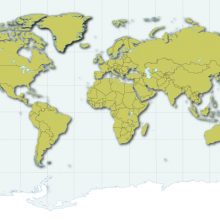
Some UCSF projects address cross-cutting health topics that are global in scope, yet not specific to a particular country. Often these topics involve macro-economic forces, such as globalization. For instance, the global HIV epidemic has impacted the largest number of people in sub-Saharan Africa, yet has also impacted and elicited a response from countries around the world. Often health economics and policy research addresses particular vulnerable groups or draws conclusions about sub-groups of countries grouped by economic indicators. UCSF educational programs seek to provide training opportunities and short-term research projects for health sciences students and master's students in countries around the world.
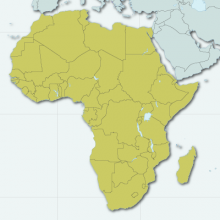
UCSF has several notable project sites in Africa; among them are:
- The Proctor Foundation, which investigates treatments for blinding diseases, trachoma, and keratitis in Africa.
- University of Zimbabwe. Since 1994, UCSF has researched HIV-associated opportunistic infections, the psychosocial aspects of prevention, and strategies in healthcare delivery.
- Since 1998, UCSF has researched how malaria and HIV interact with each other and the human host. Emphasis is placed on strengthening the capacity of Makerere University-Uganda to conduct independent research.
- Since 2004, the Family AIDS Care & Education Services (FACES) program has provided care and services to HIV-affected families, and trains Kenyan health workers in evidence-based HIV/AIDS care in collaboration with the Kenya Medical Research Institute (KEMRI) and the Kenyan Ministries of Health.
- Muhimbili University of Health and Allied Sciences (MUHAS). Since 2005, this institutional partnership has increased the capacity of MUHAS to educate healthcare workers in Tanzania.
- Foundation for Professional Development - South Africa. Begun in 2008 as a collaboration with UCSF Nursing, the foundation has worked to revamp curriculum and train a new generation of nurses.
- Aga Khan Health Services - Tanzania. In 2009, UCSF formalized a relationship with the largest private nonprofit healthcare system in the developing world.
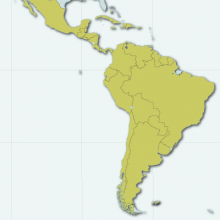
Latin America has strong biomedical research traditions, from the early twentieth-century foundation of the Oswaldo Cruz Foundation in Brazil in 1900 (then called the Serum Therapy Institute) and the pioneering work of tropical medicine researchers such as Carlos Chagas. UCSF researchers are involved in a range of projects researching public health and medicine in Latin America and the Caribbean, from tracking viral pathogens in Nicaragua, to large-scale clinical trials, to policy research on the prices of essential medications. The Prevention and Public Health Group (PPHG) has been involved in PEPFAR implementation in selected regions of the Caribbean and Latin America and has hosted Fogarty scholars from Brazil. Collaborative training activities in health science education are hosted by the UCSF-Cuba Research Programme in Health Diplomacy and Medical Education. Efforts to identify drugs to treat schistosomiasis are ongoing in Mexico. However, not all global projects in Latin America pertain to public health and medical education. For instance, UCSF researcher Victor I. Reus examines the genetics of bipolar disorder among populations in Cost Rica and Columbia.
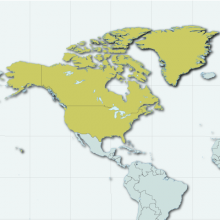
Many UCSF projects that seek to build capacity and solve research problems with a worldwide scope are based in Northern America, often on UCSF campuses and in university laboratories. Most projects addressing the science of drug screening or development to treat neglected tropical diseases (NTDs) are unfolding in UCSF laboratories at Parnassus or Mission Bay. Likewise, many projects that address the specific health needs or ailments of immigrants and refugees are based in the United States or Canada. In some cases, research on topics such as the immunology of HIV infection may have implications far beyond the San Francisco clinics and laboratories where it is based.
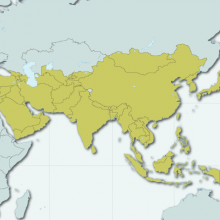
UCSF research in Asia mirrors the numerous and diverse sub-regions of Asia. Much of the work in these regions is associated with the epidemiology, prevention, and control of infectious disease, principally HIV, malaria, and tuberculosis. For instance, Sir Richard Feachem and his team members at The Malaria Elimination Initiative of the Global Health Group (GHG) have been working to support countries for malaria control and elimination in Asia. In the field of prevention and harm reduction, researchers such as Vincanne Adams and Mohsen Malekinejad have been studying substance abuse in China and Iran. Other research efforts focus on empowerment and HIV prevention among high-risk women and girls, such as the Children's Resiliency Program in India and Kimberly Page's work with sex workers in Cambodia.
Since 1991, UCSF researchers have studied trachoma, Sjögren syndrome, and optical health delivery at the world's largest eye hospital, Aravind Eye Hospital, India.
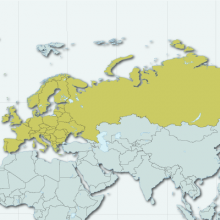
Though often overlooked in lists of activities pertaining to global health, European collaborations with UCSF researchers are very common. Large clinical trials studying medications for diseases such as heart disease, cancer, or HIV often include European cohorts in their studies. UCSF scientists often gain training in Europe and vice versa. UCSF researchers are part of trans-national networks that study topics as diverse as neonatal stroke and HIV and hepatitis C coinfection among injection drug users (IDU).
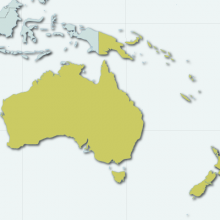
UCSF's Malaria Elimination Initiative and the Pacific AIDS Education and Training Center work to improve local capacity to respond to malaria and HIV in Oceania. In addition to epidemiology, prevention, and control activities related to infectious disease, UCSF researchers are investigating the genetics of schizophrenia among isolated populations in Palau and participate in international clinical trial networks that include Australian cohorts.
IAVI is an international, not-forprofit, Product Development Partnership working across sectors and borders to advance the research and development of effective, safe and accessible AIDS vaccines for the people most in need.
The Pacific Rim Research Program is a multi-campus program established to encourage Pacific Rim research on the ten campuses of the University of California. It sponsors a competitive grants program that provides funds for University of California faculty and graduate students who do research on Pacific Rim topics in a variety of disciplines. Its priorities are:
- comparative investigation across national, cultural, linguistic and/or regional boundaries;
- focus on interactions, flows, or major issues affecting the Pacific Rim region and specific to it;
- collaboration of scholars in different countries and, where appropriate, different disciplines.
Multi-disliplinary, multi-region research is encouraged. Proposals will be evaluated for scholarly merit, originality, purpose, relationship to existing research, theoretical framework, methodology, participants’ qualifications and roles, adequacy of available resources, budget justification, anticipated products, schedule, and dissemination plan.
More than 33 million people around the world are currently living with human immunodeficiency virus (HIV). While huge progress has been made in increasing access to HIV treatment in the past decade and new HIV infections have substantially declined in some regions, the pandemic continues to outpace efforts to control it. The number of newly infected people each year outnumbers those who gain access to treatment by two to one.
Defeating HIV will require a comprehensive response, and effective programs must be scaled up to treat people already infected and prevent new infections. New tools are also needed to defeat the pandemic, and investment in research and development for new products remains essential. UCSF researchers address issues across the range of HIV/AIDS studies.
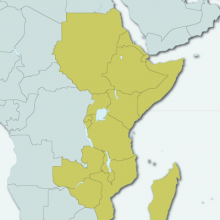
Eastern Africa has a high burden of parasitic and other infectious diseases, and has been particularly affected by the HIV/AIDS epidemic. UCSF's many projects in Eastern Africa include the Proctor Foundation's work to control and treat infectious diseases of the eye, such as trachoma and bacterial and fungal keratitis. In Kenya, the Family AIDS Care & Education Services (FACES) program works with the Kenyan Ministry of Health to support HIV clinical care and prevention, along with myriad research and education projects. A longstanding collaboration with the University of Makerere in Uganda (MU-UCSF) provides a site for extensive training and research projects, with many projects addressing the HIV/AIDS epidemic. In Mozambique and Malawi, UCSF researchers from the School of Nursing work to implement prevention education projects with HIV-positive individuals and build capacity in nursing. UCSF researcher Suellen Miller and her team at the Safe Motherhood Initiative work to address obstetric hemorrhage in Zimbabwe and Zambia. UCSF researchers are also involved with antiretroviral treatment provision and the epidemiology and control of drug-resistant TB in the region.
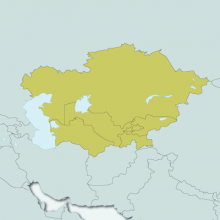
The Malaria Elimination Initiative of UCSF's Global Health Group (GHG) supports the countries of Kyrgyzstan, Tajikistan, and Uzbekistan in their efforts to eliminate malaria.

Several UCSF researchers work on issues related to HIV risk in China, studying populations at risk of HIV and other blood-borne infections, such as MSM and IDU.
The Malaria Elimination Initiative of the Global Health Group (GHG) works on malaria control in Korea, among other sites in Asia.
Some large research networks and clinical trials have sites in Eastern Asia. One such project examines the safety and efficacy of hepatitis B treatment for pediatric patients in Korea, along with other international sites. The International Research Registry Network for Sjögren Syndrome has sites in Japan and China.
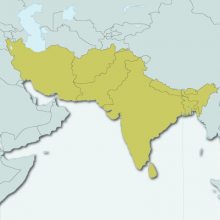
Much of UCSF's work in Southern Asia is in India. Several investigators study the epidemiology of HIV and HPV-related neoplasias among Indian MSM. Other researchers have looked at HIV risk, health promotion, and antiretroviral treatment adherence in India. Suellen Miller's research project on devices to address obstetric hemorrhage has study sites in India.
The Malaria Elimination Initiative of UCSF's Global Health Group (GHG) has been involved in regional efforts to control malaria, focusing on Nepal, Sri Lanka, and Bhutan. The Proctor Foundation has projects for preventing blindness caused by infectious diseases of the eye (principally trachoma and keratitis) in Nepal and India.
UCSF researchers are involved in projects detecting viral pathogens associated with encephalitis, studying substance-using populations in Iran, and examining abortion and contraception services in Nepal.
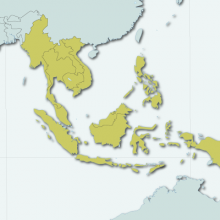
UCSF has a strong presence in South-Eastern Asia, particularly addressing prevention and control of infectious diseases. Notable projects in this region include research on health risks of sex workers and migrants in Cambodia and technologies to improve TB diagnostic services in Viet Nam.
Several projects address pediatric disease, such as the vascular effects of pediatric stroke in China and neurodevelopment of HIV-infected children in Cambodia and Thailand. Other HIV-related projects in Thailand examine the immunology of HIV infection, including neurological and central nervous system consequences of long-term infection with HIV.
As in other Asian regions, the Malaria Elimination Initiative of the Global Health Group works with counties in the region on malaria elimination.
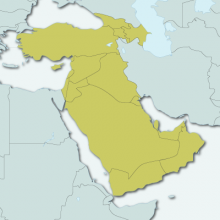
In Western Asia, sometimes known as "The Middle East," UCSF researchers collaboratively study the safety and efficacy of a pediatric medication for hepatitis B. Along with such research collaborations, UCSF also hosts international scholars and trainees from the region.
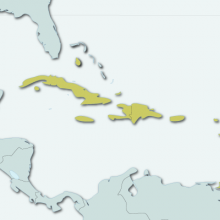
The Prevention and Public Health Group (PPHP, formerly the Institute for Global Health) and the International Training and Education Center on HIV (I-TECH) have active technical assistance and capacity-building programs in the Caribbean. Researchers with clinical trials of hepatitis C medications have sites in Puerto Rico, among other locations.
In the arena of medical education, the UCSF-Cuba Research Programme in Health Diplomacy and Medical Education works to provide cross-cultural training opportunities for medical students and clinicians.
UCSF anthropologist Ian Whitmarsh has done ethnographic research in Barbados on the formation of new disease categories through genetic research on asthma.
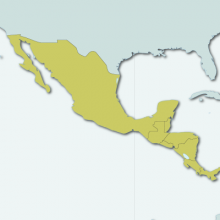
Among the many compelling UCSF projects in Central America, studies of the genetics of biopolar disease in Costa Rica and viral pathogens associated with dengue-like symptoms in Nicaragua stand out.
Much of UCSF's work in this region is in Mexico. Projects there range from efforts to develop new drugs to treat schistosomiasis, to clinical trials for hepatitis C medication, to capacity building around cardiovascular disease policy,
Related studies are looking at the health risks of immigrants from Central America to the United States.
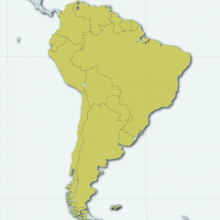
UCSF researchers in Brazil are working on drug development for Chagas disease and genetic susceptibility to visceral leishmaniasis. Large clinical trial cohorts, many of them HIV related, have sites in South America, such as International Network for Strategic Initiatives in Global HIV Trials (INSIGHT), International Maternal Pediatric Adolescent AIDS Clinical Trials Group (IMPAACT), and the Tuberculosis Trial Consortium. The Prevention and Public Health Group (PPHG) (formerly the Institute for Global Health) works with PEPFAR on HIV/AIDS epidemiology, prevention, and treatment program implementation in Guyana.
Policy research based at UCSF engages with the cost of essential medications and tobacco control in South America.
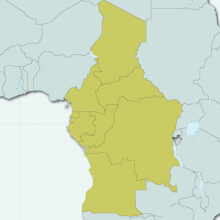
The Global Health Group (GHG) provides scientific support for the "Elimination Eight” (E8) regional initiative, a collaboration among the eight neighboring countries, including Angola, to work towards malaria elimination.
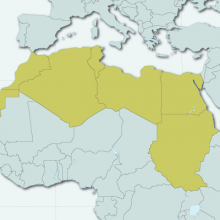
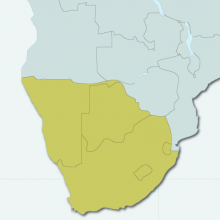
The Global Health Group (GHG) at UCSF supports the "Elimination Eight” (E8) regional initiative in their efforts to eliminate malaria in Southern Africa. The International Training & Education Center for Health (I-TECH) builds healthcare worker capacity in Nambia and South Africa. The Prevention and Public Health Group (PPHG) provides technical assistance for PEPFAR implementation in Southern Africa, including epidemiological analysis of the HIV epidemic and support for HIV care and prevention efforts. Individual UCSF researchers work on key research questions related to the HIV epidemic, such as the role of acute infection in HIV transmission and the effectiveness of interventions such as health empowerment for MSM, community mobilization, and couples-based HIV prevention.
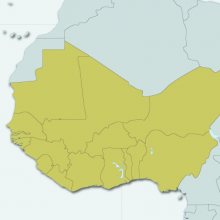
UCSF researchers have been actively involved with capacity building and technical assistance for HIV care and prevention in Western Africa. Prevention and Public Health Group (PPHG) (formerly the Institute for Global Health) supports PEPFAR implementation in Nigeria, among other countries.The International Teaching and Education Center for Heath (I-TECH) is involved with the development of electronic laboratory information systems for 3 central laboratories, and rapid scale-up for HIV care and treatment services in Cote d'Ivoire.
UCSF researchers also work on malaria in the region, exploring malaria drug resistance and supporting countries in their malaria elimination efforts. The Proctor Foundation addresses trachoma in The Gambia and Niger.
Suellen Miller's group, the Safe Motherhood Initiative, works on a device to address obstetric hemorrhage in Nigeria.
The UCSF-GIVI Center for AIDS Research has a number of funding mechanisms for UCSF scholars wishing to conduct research outside the United States, and for international scholars with UCSF mentors.
The following centers, institutes, and programs include faculty from multiple departments and schools.
The PPHG (formerly the Institute for Global Health) is a dynamic nexus of applied prevention and public health research working closely with the Centers for Disease Control and Prevention (CDC); President's Emergency Plan for AIDS Relief (PEPFAR); World Health Organization (WHO); Joint United Nations Program on HIV/AIDS (UNAIDS); the Global Fund to Fight AIDS, Tuberculosis, and Malaria; and the National Institutes of Health (NIH). Our multidisciplinary faculty has led highly effective programs in many developing countries.
Director George W. Rutherford, MD, AM, is head of the Division of Preventive Medicine and Public Health and is the Salvatore Pablo Lucia Professor of Preventive Medicine at the University of California, San Francisco. PPHG works with academic, government, private organizations and community partners throughout the world using evidence-based methods to build capacity in surveillance, monitoring and evaluation, epidemiology, clinical care, and scientific best practices. PPHG has strengths in training, technical assistance and mentoring in surveillance methodologies, core and ancillary survey design, implementation, evaluation and use.
The collaborative networks of individuals which span the campus community are organized in several ways. Organized Research Units (ORU's) and Interdisciplinary Centers (IC's) are the most common trans-campus organizations. Use the listings at the left to navigate the list of UCSF ORU's and IC's which conduct collaborative research in global health.
The Task Force for Global Health was founded as the Task Force for Child Survival in 1984. The Task Force was initially tapped to serve as a Secretariat for a consortium of global health organizations: UNICEF, WHO, The Rockefeller Foundation, The United Nations Development Programme, and the World Bank. These organizations sought Task Force support for a collaborative effort to improve child wellness and survival strategies. With the Task Force as Secretariat for the network, they resolved to work together to develop and implement a plan for global immunization efforts and measures to promote and maintain healthy children and families.
Over our 30-year history, our role as neutral convener and collaborator has expanded. Our programs include work in three sectors: health system strengthening, immunization and vaccines, and neglected tropical diseases. In each of these areas, we work with partners and communities around the world to provide and improve the resources necessary for better global health for those in need.
The Task Force for Global Health is a nonprofit, public health organization, recognized as a 501(c)(3) corporation. The organization is based in Atlanta, Georgia.
The National Alliance of State and Territorial AIDS Directors (NASTAD) represents the nation's chief state health agency staff who have programmatic responsibility for administering HIV/AIDS and viral hepatitis healthcare, prevention, education, and supportive service programs funded by state and federal governments.
The National Alliance of State and Territorial AIDS Directors (NASTAD) represents the nation's chief state health agency staff who have programmatic responsibility for administering HIV/AIDS and viral hepatitis healthcare, prevention, education, and supportive service programs funded by state and federal governments.
ur vision is that the resources invested in international development have the greatest possible beneficial impact on people’s lives.
Our mission is to provide the insight and ideas to ensure that our vision is realised.
Our company values are based on these principles:
Making a difference: We want to make a contribution to international development; we prioritise work that has a clear link to sustainable development and poverty alleviation and where our independent perspective can make a difference.
Technical excellence and innovation: We want to do the best job possible; we recognise that this challenges us continually to explore new approaches and methods, to reflect systematically on the quality of our own work and to be agile in adapting our knowledge and skills to meet client and beneficiary needs.
Collaboration and learning: We thrive in a learning environment; we contribute and learn through the work that we do and through our relationships with beneficiaries, associates, partners and clients; we aim to build local capacity so that when we leave a project or community, the skills remain and grow.
Personal development: We should all find opportunities in Itad for professional and career development; we strive to match individual and company aspirations wherever possible; we attach great importance to maintaining a positive, friendly and supportive atmosphere within our office and all our working environments.
The Department of Conservation provides services and information that promote environmental health, economic vitality, informed land-use decisions and sound management of our state's natural resources.
The Resource Allocation Program (RAP) is a campus-wide umbrella organization that allows researchers to apply for intramural funding opportunities at UCSF. RAP brings together multiple intramural funding sources and mechanisms under one program. Under RAP, awarded applications are funded by each of the funding agencies separately.
IHPS contributes to the solution of complex and challenging health policy problems through leadership in research, training, technical assistance, and public service.
The Catalysis Foundation for Health, founded in 2007, is dedicated to facilitating the efficient discovery, development, manufacture and distribution of modern diagnostic tests to address life-threatening infectious diseases and chronic conditions that are endemic in the developing world.
Aga Khan University (AKU) provides post-graduate training of health service professionals, teachers and managers of schools, and the development of research scholars. It was granted its charter in 1983 as Pakistan's first private, autonomous university.
An independent philanthropic organisation, headquartered in London with offices in Nairobi and New Delhi.
The RSNA Research & Education Foundation was inspired by the changing needs of the radiology community. Since 1984, the Foundation has awarded 1,100 grants—launching careers and pioneering research. The Foundation plays a very special role in this endeavor by providing financial support and guidance to radiology educators and investigators. It is that critical support that allows our specialty’s brightest to act on their inspired ideas and bring them to fruition. A grant awarded by the Foundation paves the pathway to increased funding and inspires investigators and educators to pursue careers that will allow them to inspire the next generation.
Metabiota is the pioneer in comprehensive risk analytics that improve the world’s resilience to epidemics.
Built on a strong foundation of epidemiology and international field science, including a worldwide network of on-the-ground experts, Metabiota delivers actionable, data-driven insights that help countries, governments and corporations manage and mitigate infectious diseases. With a strategic global presence and sustained partnerships, Metabiota’s agile approach is helping the world track and transfer the risk associated with epidemic threats.
The company’s international footprint includes operations in 20 countries and offices in San Francisco, Washington, China, Canada, and Sierra Leone.
GPAS is a multidisciplinary global surgery collaboration focused on developing, implementing, and evaluating strategies that improve surgical and perioperative care capacity in resource-poor settings.
As a leading global healthcare and diagnostics company, we strive to make advances toward greater certainty for our customers by providing them with cutting-edge technology that makes a real difference. We move to narrow the gap between doubt and confidence and work to achieve both incremental and transformational progress to improve patients’ lives.
For nearly 15 years, Intellectual Ventures has been the global leader in the business of invention. Our mission is to energize and streamline the invention economy while producing a financial return for our investors.
Capital for Good is a non-profit 501(c)(3) organization committed to connecting donors and grantmakers with the most effective international and domestic non-governmental organizations (NGOs) working in the areas of education, health, human liberty and economic empowerment.
A private foundation established in 1990 to enlarge the educational opportunities of gifted and talented Northern California youth who demonstrated exceptional academic promise, as well as “strength of character, enterprise, and personal initiative.”
Metabiota is the pioneer in comprehensive risk analytics that improve the world’s resilience to epidemics.
Built on a strong foundation of epidemiology and international field science, including a worldwide network of on-the-ground experts, Metabiota delivers actionable, data-driven insights that help countries, governments and corporations manage and mitigate infectious diseases. With a strategic global presence and sustained partnerships, Metabiota’s agile approach is helping the world track and transfer the risk associated with epidemic threats.
The company’s international footprint includes operations in 20 countries and offices in San Francisco, Washington, China, Canada, and Sierra Leone.
An independent philanthropic organisation, headquartered in London with offices in Nairobi and New Delhi. We work with a wide range of partners to transform the lives of poor and vulnerable children in developing countries.
The Makerere University - Johns Hopkins University Research Collaboration was founded by clinical researchers interested in finding ways to prevent HIV infection in children and dedicated to improving the health of women, children, and families who are infected and affected by HIV/AIDS. The collaboration started by scientists and clinicians from the US and Uganda has flourished dramatically into a diverse community of talented clinical investigators, scientific researchers and participants.
The Henry M. Jackson Foundation for the Advancement of Military Medicine, Inc. (HJF) is a global organization dedicated to advancing military medical research. Serving military, medical, academic and government clients by administering, managing and supporting preeminent scientific programs that benefit members of the armed forces and civilians alike.
The California Workforce Development Board (State Board) is responsible for assisting the Governor in performing the duties and responsibilities required by the federal Workforce Investment Act of 1998.
The mandate of the Respiratory Care Board is to protect and serve the consumer by administering and enforcing the Respiratory Care Practice Act and its regulations in the interest of the safe practice of respiratory care. Licensed Respiratory Care Practitioners (RCPs) regularly perform critical lifesaving and life support procedures prescribed by physicians that directly affect major organs of the body. RCPs provide care directly to the patient in either a hospital setting or the patient's home. Patients may be suffering from lung cancer, emphysema, asthma, or cystic fibrosis, or may be premature infants whose lungs have not yet fully developed. More than 34,000 RCP licenses have been issued in the State of California.
Each year across the world, one million preterm babies die within the first 28 days of life. Of the 14 million more preterm babies who survive, many are faced with a lifetime of serious health complications.
The UCSF Preterm Birth Initiative (PTBi) is a multi-year research effort working to reduce the burden of prematurity in California and East Africa. PTBi engages in holistic, place-based research and respectful care across the reproductive life course.